Program Duration:
Choice of
12, 24, 48, 96 or 192
LESSONS with YEARLY ASSESSMENTS
Our Music Course at JSM is designed for aspiring musicians who are passionate about music and wish to develop their performance skills to a professional level. This course focuses on providing students with intensive training and guidance in instrumental or vocal performance.
Throughout the course, students will have the opportunity to study under experienced and accomplished faculty members who are dedicated to nurturing their musical growth. The curriculum emphasizes the development of technical proficiency, expression, interpretation and stage presence.
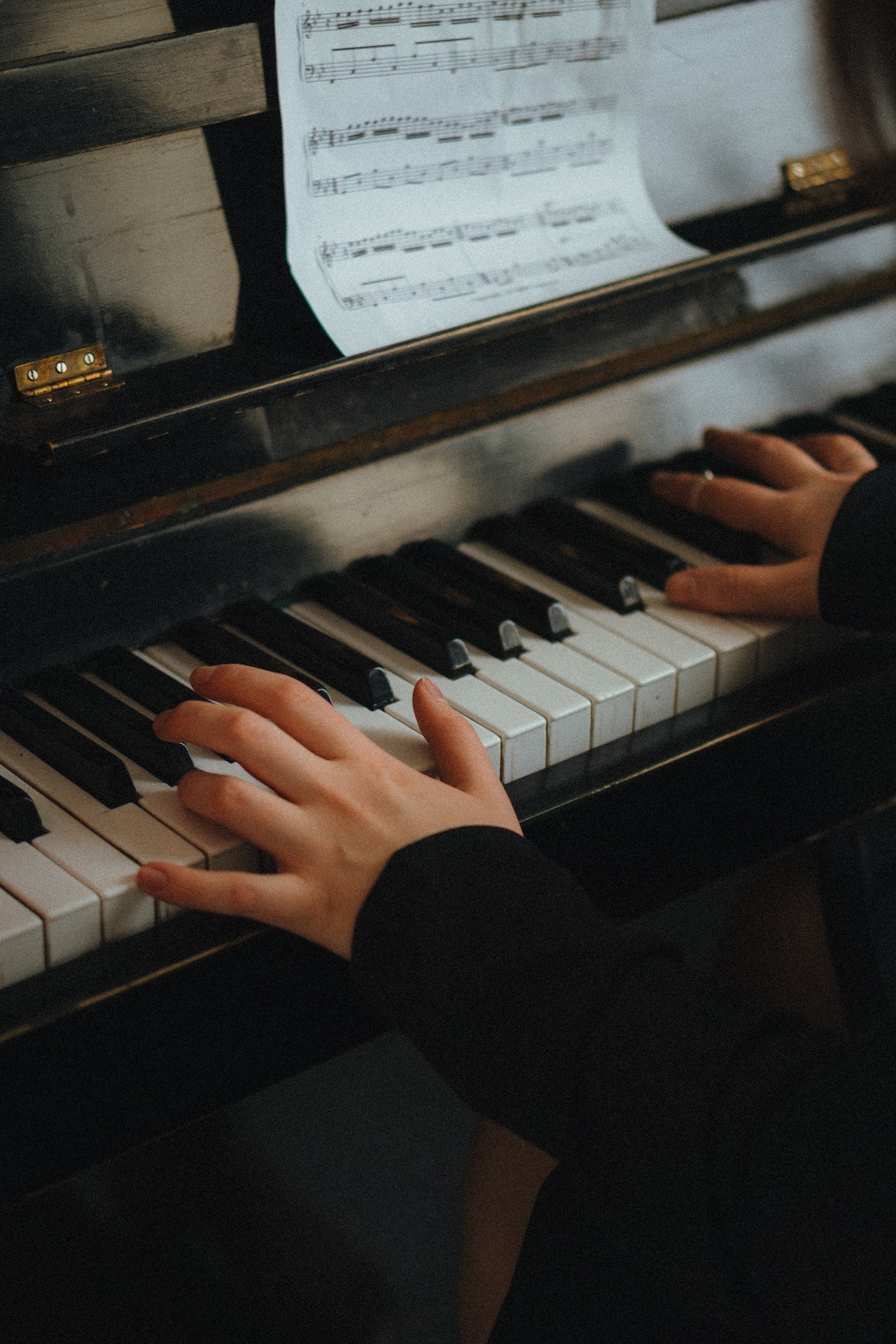
Showcase
Got a Question?
Wanting to know more about the course topics or how we can fit with your schedule? We’re here to help!
Key components of the course include:
Individual Instrumental or Vocal Instruction:
Students will receive one-on-one instruction tailored to their specific instrument or vocal range. This personalized approach allows for focused attention on technique, tone production, musicality, and repertoire selection.
Masterclasses and Performance Workshops:
Regular masterclasses and performance workshops will be conducted, providing students with the opportunity to perform in front of their peers and receive constructive feedback from faculty and guest artists. These sessions will focus on refining performance skills, interpretation, stage presence, and audience engagement.
Ensemble and Chamber Music:
Collaborative music-making is an essential aspect of classical performance. Students will have the opportunity to participate in chamber music ensembles, orchestras, or choirs, allowing them to work collaboratively, and gain experience in performing with others.
Performance Opportunities:
The course will provide numerous performance opportunities, including solo recitals, ensemble concerts, and participation in departmental or community events. These performances will allow students to showcase their progress and gain valuable stage experience.
Music Theory and Analysis:
A solid theoretical foundation is crucial for understanding and interpreting classical and contemporary music. Students will study music theory, analysis, and historical context to deepen their understanding of the repertoire they perform.
Career Development:
The course will also provide guidance on career development in the music industry. Students will learn about audition preparation, repertoire selection, concert programming, and networking opportunities.
By the end of the course, students will have honed their technical skills, expanded their repertoire, and gained valuable performance experience. They will be well-prepared to pursue further studies in music or embark on a career as a professional classical and/or contemporary musician.
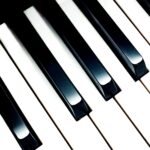
I. PIANO
- Introduction to piano technique and posture
- Note reading and rhythm exercises
- Finger exercises and scales
- Playing simple melodies and chords
- Intermediate and advanced piano repertoire
- Interpretation and expression in piano performance
- Sight-reading and memorization techniques
- Analysis in chordal progression, modulation and key changes
- Piano ensemble and collaborative playing
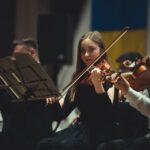
III. PERFORMANCE
- Stage presence and confidence building
- Performance techniques and body language
- Interpretation and expression in performance
- Rehearsal strategies and preparation
- Performance etiquette
- Solo and ensemble performance opportunities
- Feedback and critique sessions
- Performance psychology and managing stage fright

II. SINGING / VOICE
- Breathing and vocal warm-up exercises
- Positioning of tongue, articulation and projection
- Vocal technique and range development
- Diction and pronunciation
- Interpretation and expression in vocal performance
- Vocal health and care
- Solo and ensemble singing
- Performance of various musical styles (pop, classical, jazz, etc.)
- Vocal improvisation and harmony singing
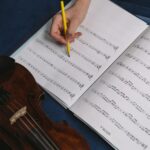
IV. COMPOSITION
- Introduction to music composition principles
- Melody and harmony writing; Voice leading
- Arranging music for different instruments and ensembles
- Creative exploration and original composition projects
- Analysis of musical forms and structures
- Experimentation with different compositional techniques
- Notation software and music engraving
- Collaboration with performers and ensembles
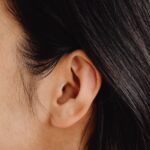
V. MUSIC THEORY
- Basic elements of music theory
- Note reading and rhythm
- Scales and key signatures
- Chords and chord progressions
- Analysis of musical structures
- Ear training and sight-singing
- Harmonic analysis and chord functions
- Advanced topics such as modal harmony and extended chords
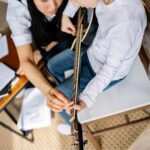
VI. PEDAGOGY
- Principles of music education and teaching methods
- Lesson planning and curriculum development
- Assessment and evaluation techniques
- Effective communication and rapport building with students
- Teaching techniques for different age groups and skill levels
- Incorporating technology in music education
- Professional development and continuing education opportunities
TECHNIQUE
I. Technical Work:
- Warm-up exercises to develop finger/hand dexterity and flexibility.
- Scales, arpeggios, and other technical exercises to improve technique and finger strength.
- Etudes and studies focusing on specific technical challenges.
- Sight-reading exercises to enhance reading skills and fluency.
a. Piano Technique:
- Scales: Major, minor and chromatic scales in all keys, hands separately and together.
- Arpeggios: Major and minor arpeggios, broken chords, and chordal progressions.
- Finger Exercises: Development of finger strength, independence, and agility.
- Hanon and Czerny Exercises: Utilization of technical exercises to improve technique and coordination.
b. Singing/Voice Technique:
- The 9 Elements of Technique: Focus on breathing, mouth/tongue positioning, articulation, diction, projection, pitch, range, tempo, and clarity.
- Vocal Exercises: Practice of slide, siren, glide, trill, buzz, humming, and yawning exercises to develop vocal flexibility and control.
c. Vocal Exercises:
- This course focuses on vocal exercises designed to enhance vocal technique, flexibility, and control. Students will explore various exercises, including the slide, siren, glide, trill, buzz, humming, and yawning exercises, to develop vocal range, agility, and expressiveness. The course aims to improve breath control, articulation, pitch accuracy, and overall vocal quality.
I. Warm-Up and Breathing Exercises:
- Diaphragmatic breathing exercises to develop breath control and support.
- Lip trills and humming exercises to warm up the vocal folds.
- Breath-focused exercises to improve breath management and control.
II. Vocal Range and Flexibility:
- Slide exercises to explore and expand vocal range.
- Siren exercises to develop smooth transitions between registers.
- Glides and sirens on specific intervals to improve pitch accuracy and flexibility.
III. Articulation and Diction:
- Tongue twisters and consonant-focused exercises to improve articulation.
- Vowel-focused exercises to enhance clarity and diction.
- Articulation exercises on challenging consonant sounds.
IV. Pitch Accuracy and Intonation:
- Pitch matching exercises to improve ear training and intonation.
- Interval recognition and singing exercises to develop accurate pitch intervals.
- Pitch glides and slides to refine pitch control and accuracy.
V. Tone and Resonance:
- Buzzing exercises to develop vocal resonance and tone quality.
- Resonance-focused exercises to explore different vocal resonators.
- Open throat exercises to promote a relaxed and resonant vocal production.
VI. Expressiveness and Musicality:
- Yawning exercises to promote relaxation and openness in the vocal mechanism.
- Phrasing exercises to develop musicality and expression.
- Dynamics and interpretation exercises to convey emotion and storytelling in performance.
VII. Performance and Integration:
- Application of vocal exercises to repertoire performance.
- Integration of vocal exercises into warm-up routines.
- Performance opportunities to showcase vocal development and progress.
II. Repertoire:
Selection of repertoire from various musical styles and periods.
- Classical: Selection of classical pieces from different periods and composers.
- Opera: Introduction to operatic repertoire and vocal techniques specific to opera.
- Contemporary: Exploration of contemporary vocal styles and repertoire.
- Jazz, Pop, R&B, Motown, Soul: Study of vocal techniques and repertoire in these genres.
Gradual progression from easier to more challenging pieces;
Emphasis on pieces that target specific technical skills;
Performance of solo pieces, chamber music, or vocal repertoire.
III. Aural Perception:
- Sight-Reading: Gradual progression of sight-reading exercises to improve reading skills.
- Aural Training: Ear training exercises to develop pitch recognition, interval identification, and chord progressions.
- Applied Theory: Practical application of music theory concepts in relation to performance including Aural analysis of musical pieces to enhance understanding of structure and harmony.
- Theory and Rudiments: Study of music theory fundamentals and rudimentary concepts.
- Improvisation exercises to develop melodic and rhythmic creativity.
- Extemporisation activities to explore spontaneous musical expression.
IV. Performance:
- Regular performance opportunities to showcase technical progress and musical interpretation.
- Solo performances, ensemble collaborations, or studio recitals.
- Feedback and critique sessions to provide constructive guidance for improvement.
V. Assessment:
- Regular assessments to evaluate technical progress and musicianship.
- Performance evaluations based on technical proficiency, musicality, and interpretation.
- Aural perception tests to assess improvisation and extemporization skills.
- Written assignments or exams to assess theoretical knowledge and understanding.
VI. Graded Levels of Difficulty:
- Utilization of graded materials from open-source and music examination boards to provide a structured progression of difficulty.
- Advancement through levels based on individual progress and mastery of skills.
VII. Resources and Materials:
- Method books and technical exercise materials specific to the instrument or voice type.
- Repertoire books and sheet music from various composers and genres.
- Aural training software or online resources for ear training and improvisation practice.
- Recording devices for self-assessment and reflection.
- Progressive Books: Selection of graded books from open-source materials and music examination boards.
- Supplementary Materials: Additional resources, sheet music, and recordings as recommended by the instructor.
VIII. Course Expectations:
- Regular attendance and active participation in all class activities.
- Practice and preparation of assigned technical exercises and repertoire.
- Completion of written assignments or exams as required.
- Openness to feedback and willingness to implement suggested improvements.
Internal Levels
Criteria of Assessment
- Intermediate (low, mid, high)
- Advanced (low, mid, high)
- Lessons (25%)
- Quarterly assessments (25%)
- Homework tasks (25%)
- Yearly Recital or Video Production (25%)
- DISTINCTION (from 89%)
- MERIT (from 81%)
- PASS (from 70%)
+
- Yearly reports issued
- Yearly certificates issued
- On-going assessments sent by email
Music Examinations Boards

New Zealand:
Australia:
U.K. and the world:
https://www.trinitycollege.com/qualifications/music/grade-exams
Certificate of Merit, CA USA:
http://www.mtac.org/programs/performance/certificate-of-merit/
Piano Guild ACM, USA:
New York State School Music Association:
Yearly reports and certificates are issued by the examinations board selected.
* All of our courses are offered for the gifted and talented, the acquisition of talent, special education and those with learning difficulties.
Fee Schedule
Based on 30 minute sessions
Piano, Singing/Voice, Composition, Music Theory, Pedagogy
US Prices
Standard Rates
| 12 sessions x $51 = $612 (3 months) |
| 24 sessions: x $49 = $1176 (6 months) |
| 48 sessions: x $47 = $2256 (1 year) |
| 96 sessions: x $45 = $4320 (2 years) |
| 192 sessions: x $43 = $8256 (4 years) |
NZ Prices
Includes GST
| 12 sessions: x $46 = $634.80 (3 months) |
| 24 sessions: x $44 = $1214.40 (6 months) |
| 48 sessions: x $42 = $2318.40 (1 year) |
| 96 sessions: x $40 = $4416 (2 years) |
| 192 sessions: x $38 = $8390.40 (4 years) |
AU Prices
Includes GST
| 12 sessions: x $50.60 = $607.20 (3 months) |
| 24 sessions: x $48.40 = $1161.60 (6 months) |
| 48 sessions: x $46.20 = $2217.60 (1 year) |
| 96 sessions: x $46.08 = $4224 (2 years) |
| 192 sessions: x $41.80 = $8025.60 (4 years) |
Additional: Immersive Language Learning for Spanish / French
(reading, writing, listening, conversational)
US Prices
Standard Rates
- 4 sessions: x $40 = $180
- 12 sessions: x $37 = $444
- 24 sessions: x $34 = $816
- 48 sessions: x $31 = $1,488
NZ Prices
Includes GST
- 4 sessions: x $45 = $207
- 12 sessions: x $39 = $538.20
- 24 sessions: x $33 = $910.80
- 48 sessions: x $28 = 1,545.60
AU Prices
Includes GST
- 4 sessions: x $45 = $198
- 12 sessions: x $39 = $514.80
- 24 sessions: x $33 = $871.20
- 48 sessions: x $28 = $1,478.40
What Our Clients Say
“He encourages his students to become better and shares in their enthusiasm due to their accomplishments. Ronald genuinely cares about his students and is dedicated to making sure his students improve. ”
Angelika Santo-Domingo
“Chaz really focuses on the detail, theory and groundwork necessary to excel in music. If you are lucky enough to get your child started with him you will never regret the experience. He is simply the best! ”
Sarah Dresevic
“After just 3 months under his tutelage, I became more and more confident with the techniques I was mastering. My range also blossomed. After 1 year, I’m now finally able to reach top Ténor A with the least effort. I definitely recommend…”
